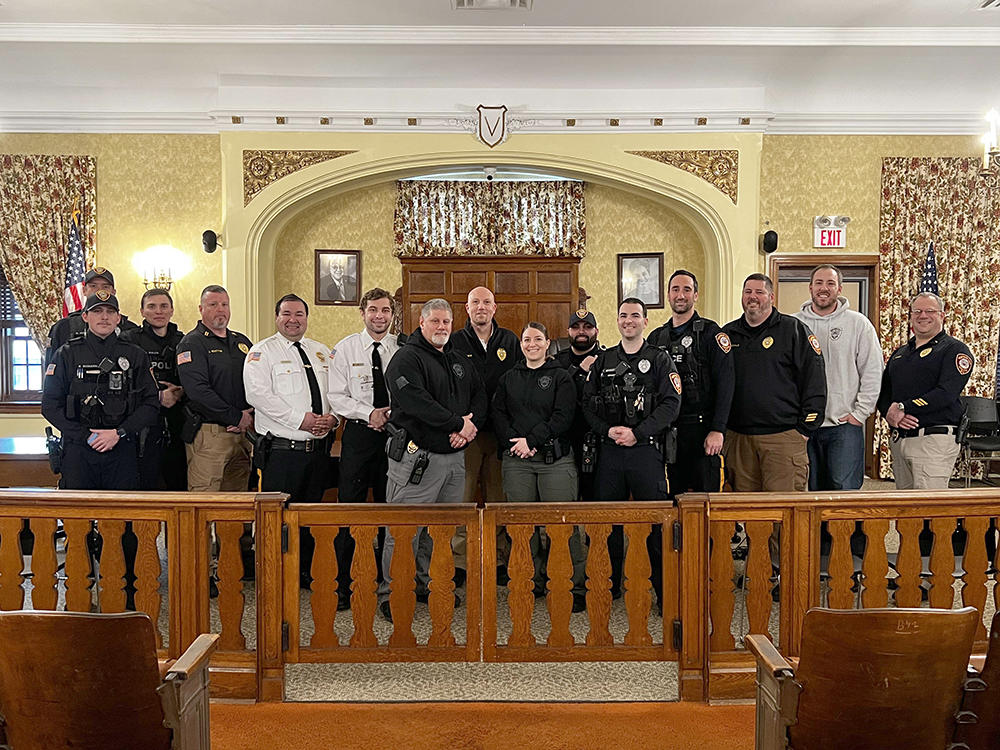By Julia Train
Ventnor City Police Department welcomed Alex W. Mann, 23, from Chester County, Pa., on Jan. 30 to spend a day as an honorary lieutenant.
Mann, who was diagnosed with autism at three years old, started visiting police departments in 2018 and has since become known for training officers on how to handle someone on the spectrum when they’re in the field.

At first, his trips weren’t for teaching officers about autism. He started as a way to show his solidarity to the jobholders. “I just wanted to be a bright light with all that bad rap they were getting,” Mann said.
After two years of visits, in 2020 he was asked by a friend who’s a sergeant in Philadelphia to teach recruits at a police academy in Montgomery County. Now he teaches regularly at five academies and police departments in New Jersey and Pennsylvania, with a 30-minute slide show he created about how officers should respond.
His training includes tips and advice coming from a person on the spectrum which officers can use on the street such as de-escalation techniques, and signals to look for that show someone might be on the spectrum.
After visiting the Margate City Police Department, Mann was greeted outside of the station and led on a tour. It was his 459th police department visit. He was gifted with a custom uniform to add to his collection, which contains several hundred.
Mann was given a tour of the “almost castle-like” building. He was shown the booking area, detective bureau and control room.
His tour was followed by a group photo in the courtroom with all the officers, detectives and command staff on duty.
The Pennsylvania native was then taken on a ride around Ventnor and shown points of interest, like the new fishing pier. Mann concluded his day by grabbing a treat with Ventnor City officers at Peace Pie.

In five years he’s been to hundreds of departments across the states of Pennsylvania, New Jersey, California, Delaware and Maryland; some departments even invited him to talk to officers about autism awareness.
Even though Mann has never been pulled over, he believes it’s important for police officers to know how to deal with those on the spectrum if or when they get pulled over. He said if it were him, he would let the officer know that he’s autistic, but added that disclosure isn’t common.
In his training, he mentions signals police can look for to indicate if someone is autistic and tips such as:
Be aware that they may need time to process what’s going on before they can even interact, speak in a calm voice, and be patient.
“These tips that I’m giving actually are things that help me in my daily life that can also apply to helping an autistic individual that the police are interacting with,” he said.
Julia is a student at Rider University, majoring in multiplatform journalism with a minor in social media strategies. At school, she writes and is news editor for The Rider News and is the News Director for the radio station, producing news updates. She’ll be graduating in the spring. Connect with her on Instagram @juliatrain















